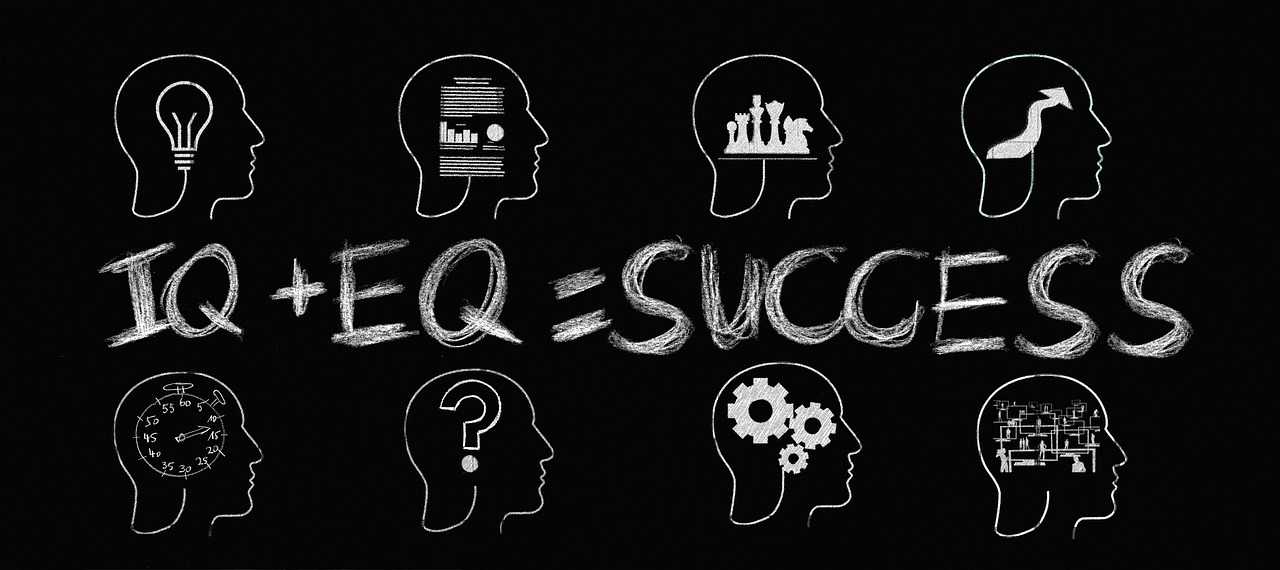In today’s fast-paced world, it’s easy to get caught up in the hustle and bustle of daily life. We often find ourselves overwhelmed by our emotions, struggling to manage stress, anxiety, and other negative feelings. But what if there was a way to unlock our emotional intelligence and find inner peace? Enter meditation – a practice that has been used for centuries to calm the mind, reduce stress, and improve overall well-being. In this article, we’ll explore how meditation can help us develop emotional intelligence, and provide tips for incorporating this powerful tool into our daily lives. So, take a deep breath, clear your mind, and let’s dive into the world of meditation for EQ.
1. Harnessing the Power of Meditation for Emotional Intelligence
Meditation is a powerful tool that can help individuals develop emotional intelligence. By practicing mindfulness and self-awareness, individuals can learn to regulate their emotions and respond to situations in a more thoughtful and effective manner. Here are some ways that meditation can help harness the power of emotional intelligence:
- Increased self-awareness: Meditation helps individuals become more aware of their thoughts, feelings, and bodily sensations. By paying attention to these experiences, individuals can better understand their emotional triggers and patterns of behavior.
- Improved focus: Meditation can help individuals improve their ability to focus and concentrate. This can be especially helpful when dealing with difficult emotions or challenging situations.
- Reduced stress: Meditation has been shown to reduce stress and anxiety, which can help individuals respond to situations in a more calm and rational manner.
Overall, meditation is a powerful tool that can help individuals develop emotional intelligence. By practicing mindfulness and self-awareness, individuals can learn to regulate their emotions and respond to situations in a more thoughtful and effective manner. Whether you are new to meditation or have been practicing for years, there are many benefits to incorporating this practice into your daily routine.
2. The Link Between Meditation and EQ: A Deep Dive
When it comes to emotional intelligence (EQ), meditation has been found to have a significant impact. EQ refers to the ability to understand and manage one’s own emotions, as well as the emotions of others. Through meditation, individuals can develop greater self-awareness, empathy, and emotional regulation, all of which are key components of EQ.
Research has shown that regular meditation practice can lead to changes in brain structure and function, including increased activity in areas associated with emotional regulation and decreased activity in areas associated with stress and anxiety. Additionally, meditation has been found to improve communication between different regions of the brain, leading to greater integration and coherence. These changes can translate into real-world benefits, such as improved relationships, better decision-making, and greater overall well-being.
- Increased Self-Awareness: Meditation can help individuals become more attuned to their own emotions and thought patterns, allowing them to better understand and manage their own behavior.
- Greater Empathy: By cultivating a non-judgmental attitude and a sense of compassion, meditation can help individuals develop greater empathy and understanding for others.
- Better Emotional Regulation: Through regular practice, individuals can learn to regulate their emotions more effectively, reducing the impact of negative emotions such as anger, anxiety, and depression.
3. Unlocking Your Emotional Intelligence through Daily Meditation Practice
Emotional intelligence is the ability to recognize, understand, and manage our own emotions, as well as the emotions of others. It is a crucial skill that can help us navigate through life, build better relationships, and achieve success in both personal and professional settings. Daily meditation practice can be a powerful tool to unlock and enhance our emotional intelligence.
Meditation helps us develop self-awareness, which is the foundation of emotional intelligence. By sitting in silence and observing our thoughts and emotions, we can learn to recognize our patterns of behavior and understand how they affect us and those around us. Meditation also helps us regulate our emotions by teaching us how to respond to them in a calm and non-reactive way. With regular practice, we can become more empathetic, compassionate, and connected to ourselves and others.
- Benefits of Daily Meditation Practice for Emotional Intelligence:
- Increased self-awareness
- Better understanding of emotions
- Improved emotional regulation
- Enhanced empathy and compassion
- Greater connection to self and others
If you want to unlock your emotional intelligence, start by incorporating daily meditation practice into your routine. It doesn’t have to be a long or complicated practice – even just a few minutes of sitting in silence and focusing on your breath can make a difference. With consistent effort and patience, you can develop the skills and qualities that will help you thrive in all areas of your life.
In conclusion, meditation can be a powerful tool for unlocking emotional intelligence. By practicing mindfulness and self-awareness, we can learn to better understand and regulate our emotions, leading to improved relationships, communication, and overall well-being. Whether you’re a seasoned meditator or just starting out, incorporating meditation into your daily routine can have a profound impact on your emotional intelligence and your life as a whole. So take a deep breath, find a quiet space, and begin your journey towards greater emotional intelligence through the practice of meditation.
